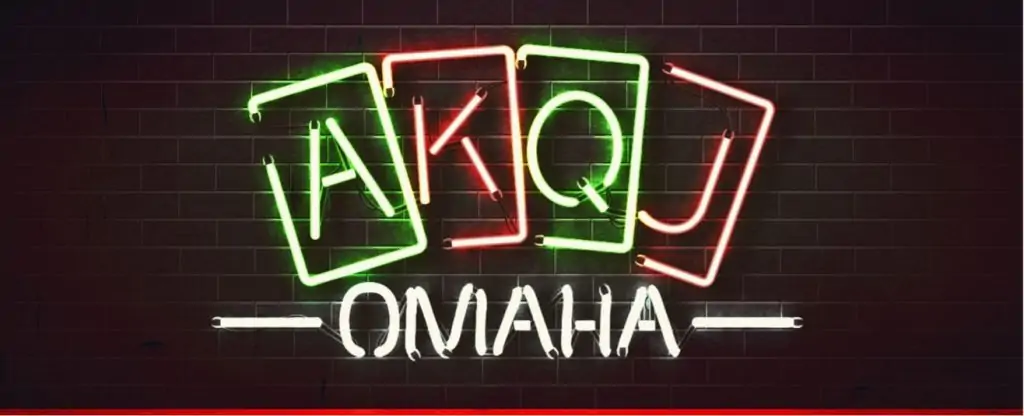The exact origin of Omaha Hold’em is not known. WSOP winner Robert Turner is thought to have invented the game and brought it to Vegas. It has grown in casinos and card rooms around the world ever since, and now you can play Omaha online right here at Ignition.

If you’re already a Texas Hold’em player you’re likely to get into Omaha quickly. One of the smallish differences is the hole cards. At the start of each hand, everyone is dealt four cards, instead of two. Then you combine just two of those hole cards with any three of five community cards to make a five-card poker hand. It’s still a standard 52-card deck and the hand rankings are the same as in Texas Hold’em.
The subtle differences between Texas and Omaha Hold’em make this game interesting and fun to play. First, while many Texas Hold’em players choose to play no-limit, the preferred betting structure for Omaha is pot-limit. Second, Omaha poker tournaments have no antes to pay. You can get all the Omaha rules and details.
Meanwhile, here are five pro tips you should know before you get in on the action.
1. CHOOSE WISELY AND BE PATIENT
Be aware that there can be a lot of bad hands in Omaha, so it is crucial that you know where your hand ranks and how to play it. Pot limit means you can’t bet more than the pot, which means there are very few pre-flop and all-in moves, and lots of post-flop action.
Remember, you can only play two of your four hole cards. Got four of a kind? Fold. Because there are no more left in the deck. The best starting hand is two aces and two kings, but even then, your success is not a sure thing. Fun and challenging game.
2. UNDERSTAND WRAPS FOR POT-LIMIT OMAHA
Most pot-limit Omaha (PLO) hands are won by straights or better. Learn to recognize wraps and count your outs to give yourself an edge. An “out” is an unseen card that gives you the best hand. The more outs you have, the better your chances.
A straight draw with nine or more outs is called a “wrap,” which can be above, below or between the community cards. And you’re forced to use at least two community cards with three of your cards.
You can learn all the different wrap possibilities online. If you can memorize them, you’re on your way to Omaha mountain.
3. PLAY YOUR POSITION
You can use your position at the table in two ways: to build a pot or to control a pot. Learn these skills now.
Okay? Remember that as you move around the table from early to late positions, your advantage gets stronger. Now you can bet according to your position strength. If you’re early, stay conservative and fold often unless you’ve got the goods. Rev up your game as you get closer to the dealer.
In Omaha, as in every poker game, knowledge is power.
4. KNOW YOUR NUTS
In Omaha poker, the “nut” hand is the best hand possible for any given board. Since everyone at the table is playing with nine cards, the chance of someone having the nut hand is pretty nutty. If it’s not you, you’re not winning.
The nut can change as the board evolves. Now’s the time that knowing your hand rankings seems pretty important. The more you play Omaha, the better you get at seeing the nuts (but we’re not talking about your in-laws, amirite?) and increasing your chances at taking the pot.
5. PUSH IT OR FLUSH IT
Bluffing is nearly impossible in Omaha, because the chance of a good hand winning every game is high. This is going to sound obvious, but always take advantage of good hands (the nuts) and don’t give your bad hands illusions of grandeur.
Unless you have a really good reason, like setting a trap or increasing your pot odds, avoid calling. You’re likely to end up in a good position for a chance to strike it big before closing time.
When you’re ready to go to town on Omaha, look us up at Ignition.


